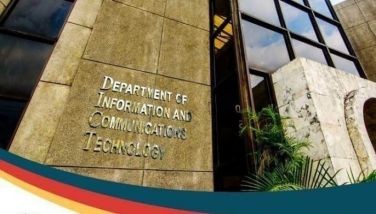RP, Malaysia intensify joint effort vs terrorism, transnational crimes
March 21, 2002 | 12:00am
KUALA LUMPUR (AFP) – The Philippines and Malaysia will intensify efforts to jointly combat terrorism and transboundary crimes, a top Philippine police official said here yesterday.
Visiting Philippines deputy police chief Edgar Galvante said both Manila and Kuala Lumpur would hold further talks to map out a formal arrangement to enhance cooperation.
"There needs to be preparatory discussion to see what the framework will be (but) we will focus on exchange of intelligence and information to deal with international terrorism," he told reporters after talks with Malaysian police chief Norian Mai.
"We are seeking further and improved cooperation so that all our concerns can be addressed, particularly in crime and efforts against international terrorism... we want to be very, very close to our neighbors."
Galvante pledged to work closely with Malaysian authorities to prevent the Abu Sayyaf Muslim rebels from slipping into Malaysia’s Sabah state on Borneo island.
In 2000, Abu Sayyaf gunmen raided Sabah island resorts and kidnapped tourists in two separate incidents.
"We want to improve on our preemptive measures so that we can anticipate what they are planning and then maybe we can neutralize them," he said.
Malaysian deputy police chief Jamil Johari said it would take time for both sides to "work things out."
"What we want to do is make our existing relationship more functional, enhanced further because of common problems we face, like international terrorism," Jamil said.
Galvante is due to leave Thursday. His trip follows a visit last week by US Federal Bureau of Investigation chief Robert S. Mueller, who dispelled reports that the US believed Malaysia was a launchpad for terror attacks.
International magazine Newsweek in a recent edition had said Malaysia was a primary operational launchpad for the airborne suicide attacks in New York and Washington, citing secret FBI data.
The report said US intelligence sources believed a former Malaysian army captain, Yazid Sufaat, who was a member of the Islamic extremist group Jemaah Islamiah, helped develop a support network for chief terror suspect Osama bin Laden in Malaysia and throughout Southeast Asia.
Yazid, who is being held for two years in a police detention camp, is alleged to have hosted and financed French national Zacarias Moussaoui, who faces trial in the US in connection with the attacks.
Visiting Philippines deputy police chief Edgar Galvante said both Manila and Kuala Lumpur would hold further talks to map out a formal arrangement to enhance cooperation.
"There needs to be preparatory discussion to see what the framework will be (but) we will focus on exchange of intelligence and information to deal with international terrorism," he told reporters after talks with Malaysian police chief Norian Mai.
"We are seeking further and improved cooperation so that all our concerns can be addressed, particularly in crime and efforts against international terrorism... we want to be very, very close to our neighbors."
Galvante pledged to work closely with Malaysian authorities to prevent the Abu Sayyaf Muslim rebels from slipping into Malaysia’s Sabah state on Borneo island.
In 2000, Abu Sayyaf gunmen raided Sabah island resorts and kidnapped tourists in two separate incidents.
"We want to improve on our preemptive measures so that we can anticipate what they are planning and then maybe we can neutralize them," he said.
Malaysian deputy police chief Jamil Johari said it would take time for both sides to "work things out."
"What we want to do is make our existing relationship more functional, enhanced further because of common problems we face, like international terrorism," Jamil said.
Galvante is due to leave Thursday. His trip follows a visit last week by US Federal Bureau of Investigation chief Robert S. Mueller, who dispelled reports that the US believed Malaysia was a launchpad for terror attacks.
International magazine Newsweek in a recent edition had said Malaysia was a primary operational launchpad for the airborne suicide attacks in New York and Washington, citing secret FBI data.
The report said US intelligence sources believed a former Malaysian army captain, Yazid Sufaat, who was a member of the Islamic extremist group Jemaah Islamiah, helped develop a support network for chief terror suspect Osama bin Laden in Malaysia and throughout Southeast Asia.
Yazid, who is being held for two years in a police detention camp, is alleged to have hosted and financed French national Zacarias Moussaoui, who faces trial in the US in connection with the attacks.
BrandSpace Articles
<
>
- Latest
- Trending
Trending
Latest
Trending
Latest
Recommended
March 23, 2025 - 12:00am






























